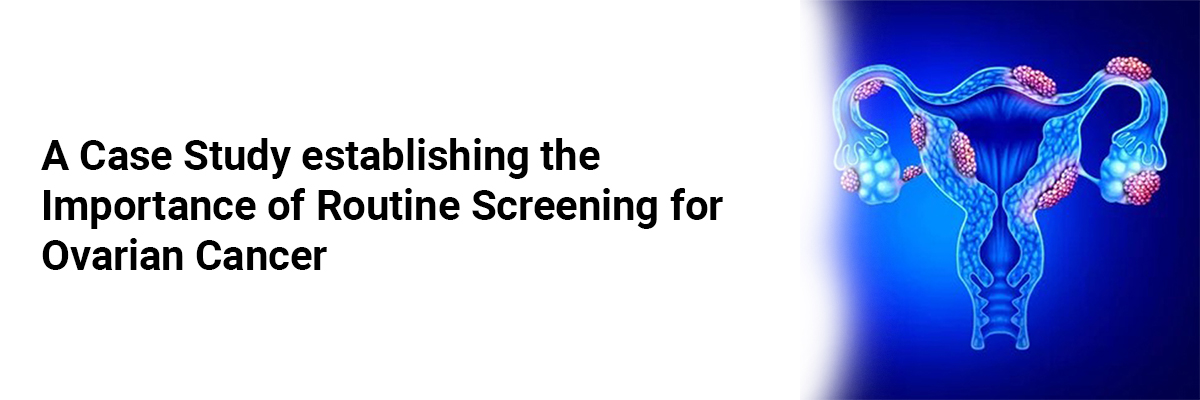
A Case Study establishing the Importance of Routine Screening for Ovarian Cancer
Current guidelines for screening and diagnosing ovarian cancer heavily depend on clinical suspicion. Clinicians should assess symptoms and risk factors to determine which patients should undergo screening. High-risk patients are regularly screened due to well-known risk factors. However, for those at average risk, the decision to screen is primarily based on clinical symptoms, which are often not sensitive or specific for ovarian cancer.
The current article presents a case of a 43-year-old woman with diffuse abdominal pain, nausea, vomiting, and constipation, who exhibited none of the typical symptoms associated with ovarian cancer such as weight loss, early satiety, abdominal bloating. The case illustrated that relying solely on clinical presentation is not a reliable method for diagnosing ovarian cancer, indicating the potential benefits of routine screening. As early screening could have likely caused an earlier detection of her tumor, improving her prognosis.
Source: Paparozzi J, Betros T, Shah S, McGinley M, Hernandez D, Del Campo SS. An atypical presentation of advanced-stage ovarian cancer: Is there value in routine screening?. Int J Clin Obstet Gynaecol 2024;8(6):121-124. DOI: 10.33545/gynae.2024.v8.i6b.1551














Please login to comment on this article